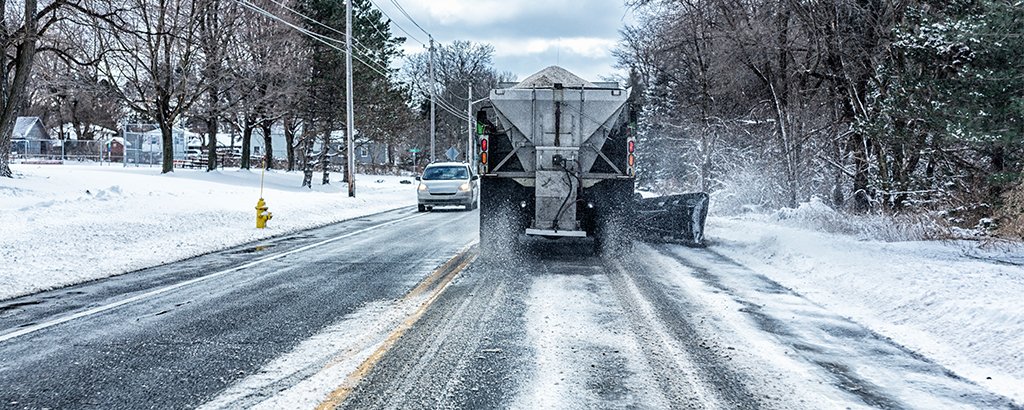Tips to protect your car from road salt

Salt that is spread on winter roads does more than eat away at ice — it eats at your vehicle too.
Road salt works by lowering the freezing point of water. With the right concentration, road crews can drop the freezing point to less than zero degrees Fahrenheit.
Unfortunately, all that salt is corrosive to vehicles. Although most modern cars have improved corrosion-resistant coatings compared to older models, salt is still an issue in the long term.
Over time, salt can cause rust to build up on the hidden parts of your car, eating away at the metal. Not only is the underside of your car most at risk, but that salty spray gets kicked deep into the undercarriage where rust can become a safety concern.
Rust may be unsightly on the sides of your vehicle, but rust underneath can lead to a variety of issues, including hydraulic brake leaks and reduced structural integrity.
Here’s what you can do to protect your car:
Regular car washes
The experts’ best advice is to wash your car regularly (as in weekly) in winter when you’ve been driving on salted roads. Use an automated car wash with an undercarriage spray or do it yourself with a pressure washer.
Rust proofing
If you have an older car, ask your body shop for a rust-proofing service. A good professional job should include attention to the brake and fuel lines and electrical areas such as battery terminals, wiring, and plugs. For newer cars, however, Consumer Reports suggests that rust-proofing is an unnecessary expense.
That said, consider extra rust-proofing if your car has been in an accident. Rust can occur if any unprotected steel is exposed or any of your car’s special coatings are chipped.
Article compliments of Secura Insurance, a Bolder Insurance partner.







